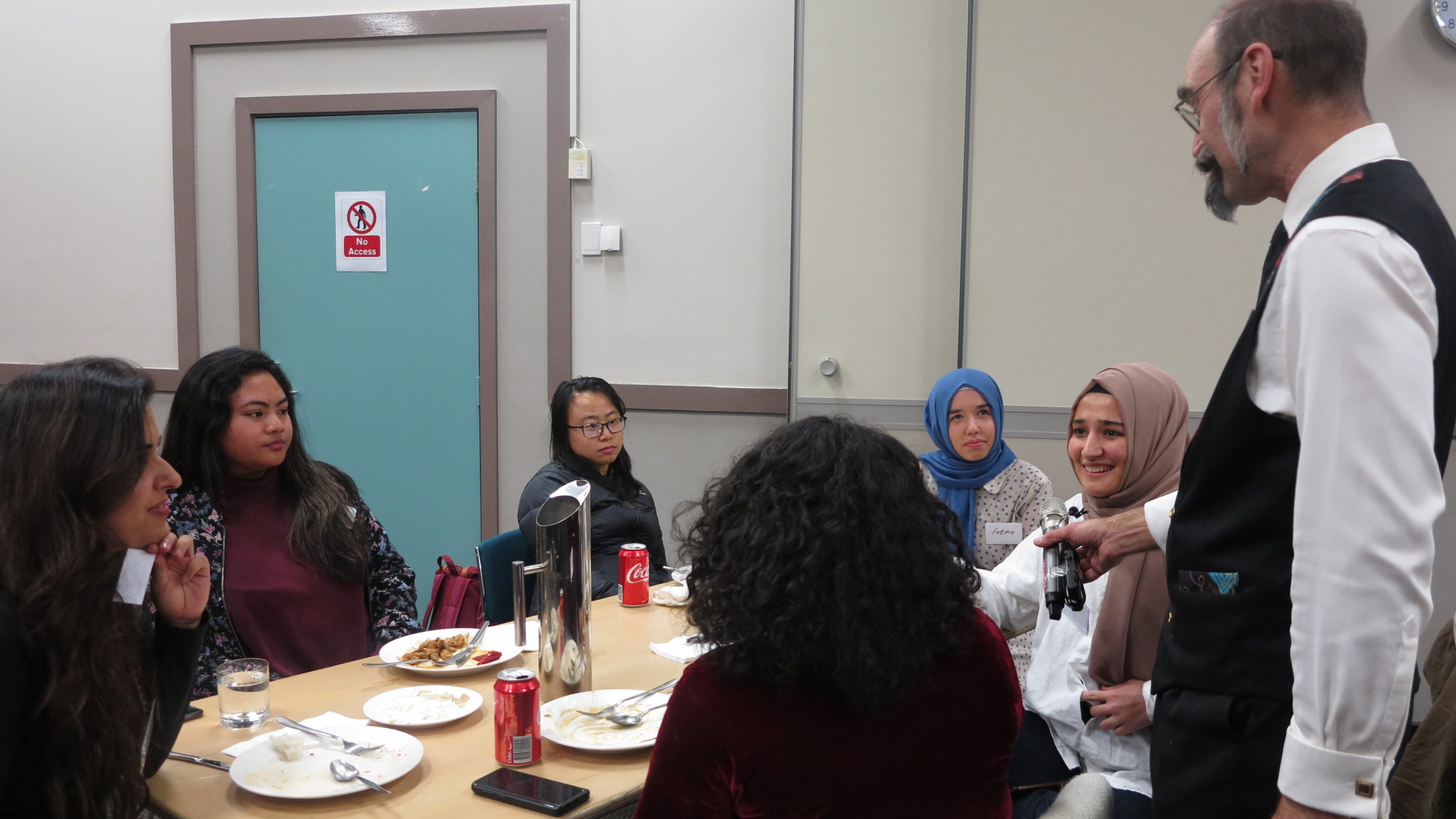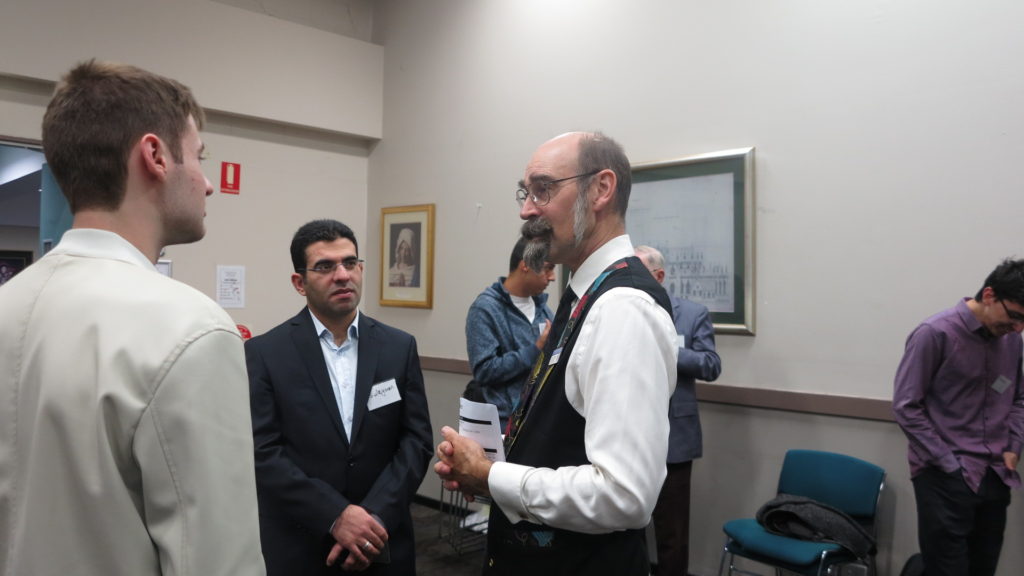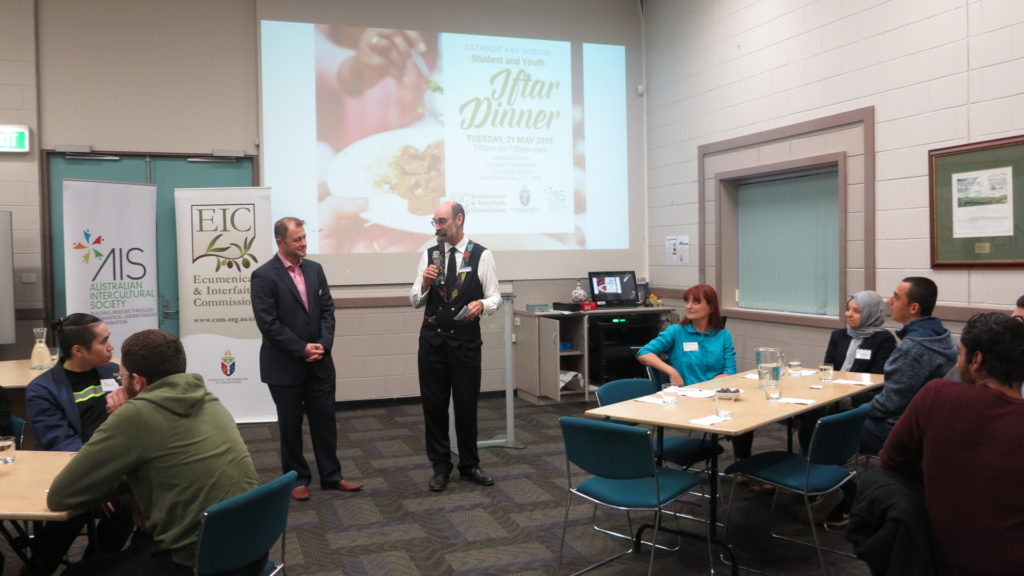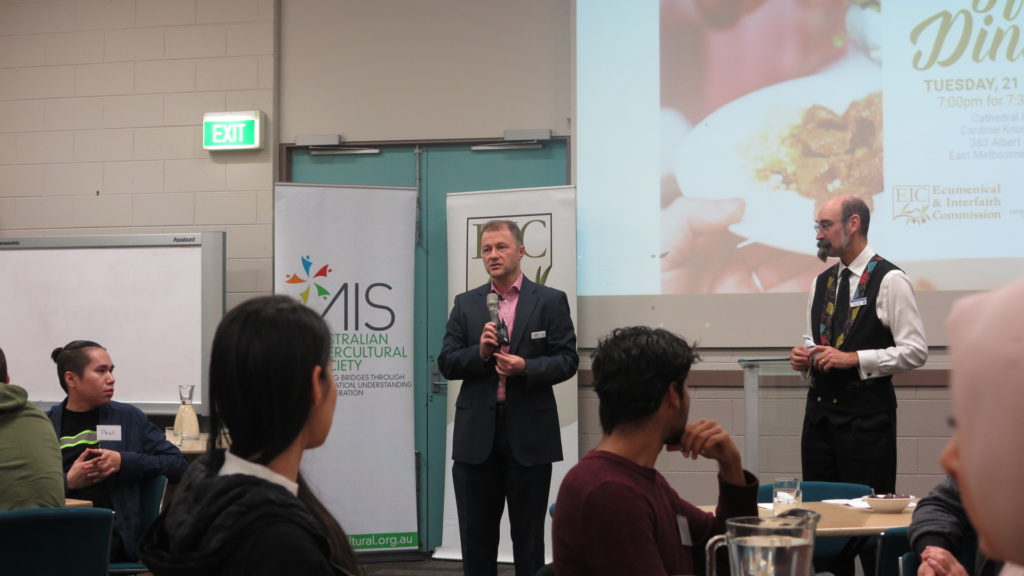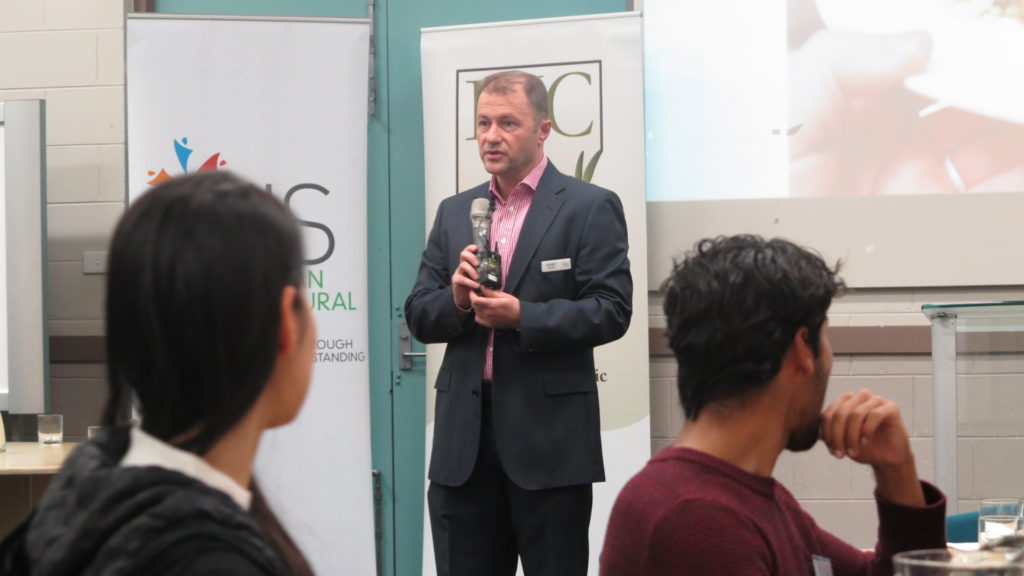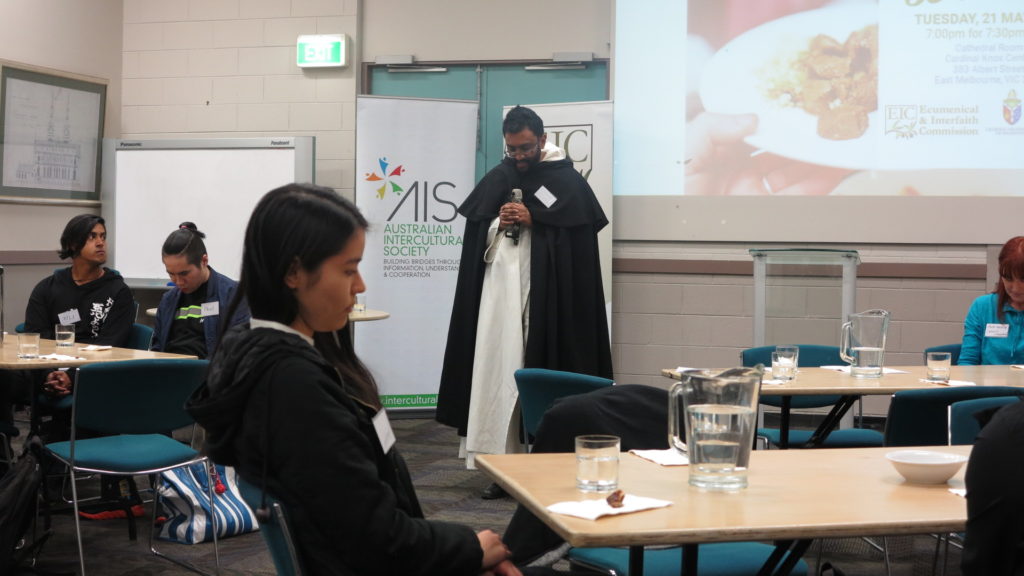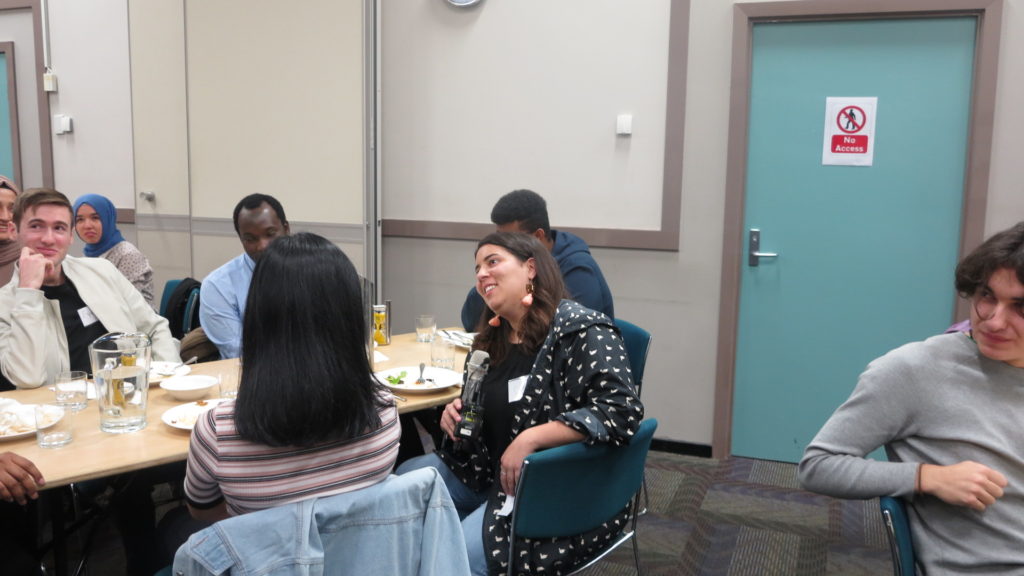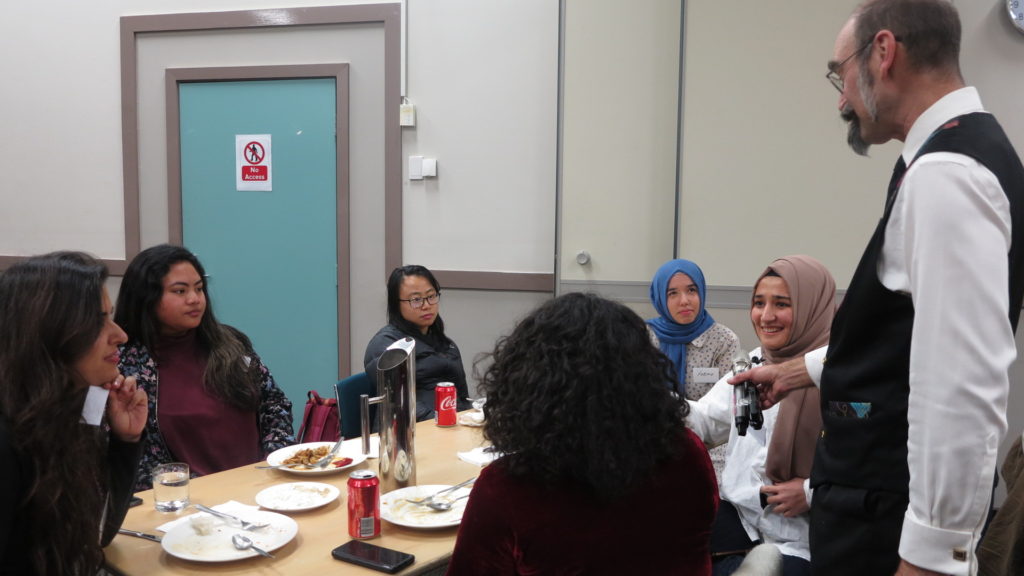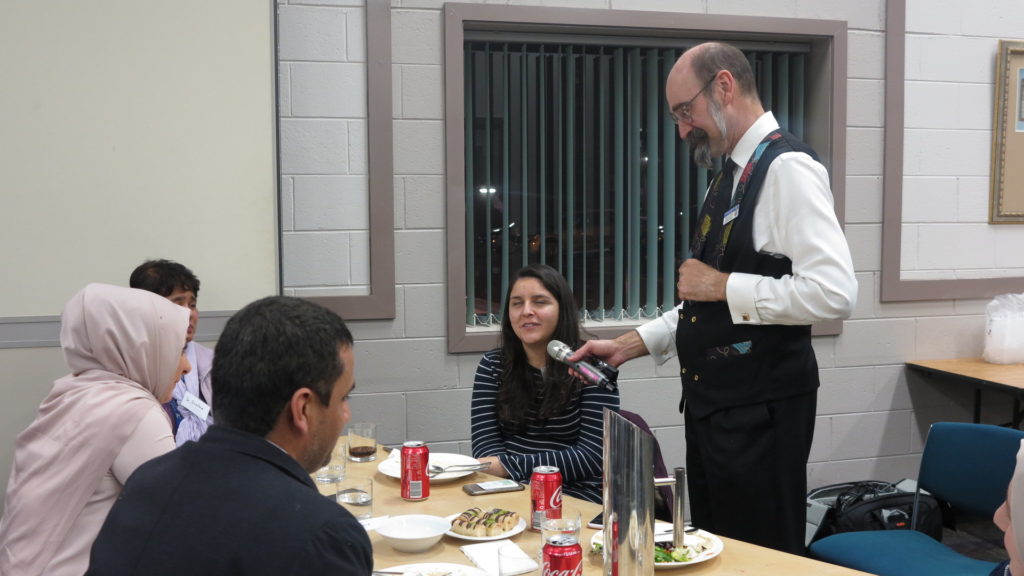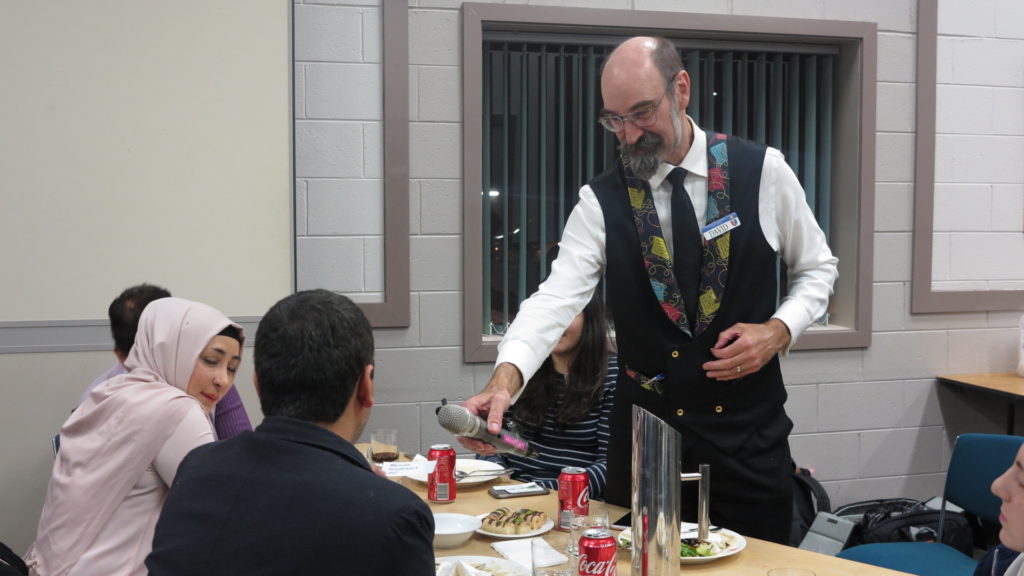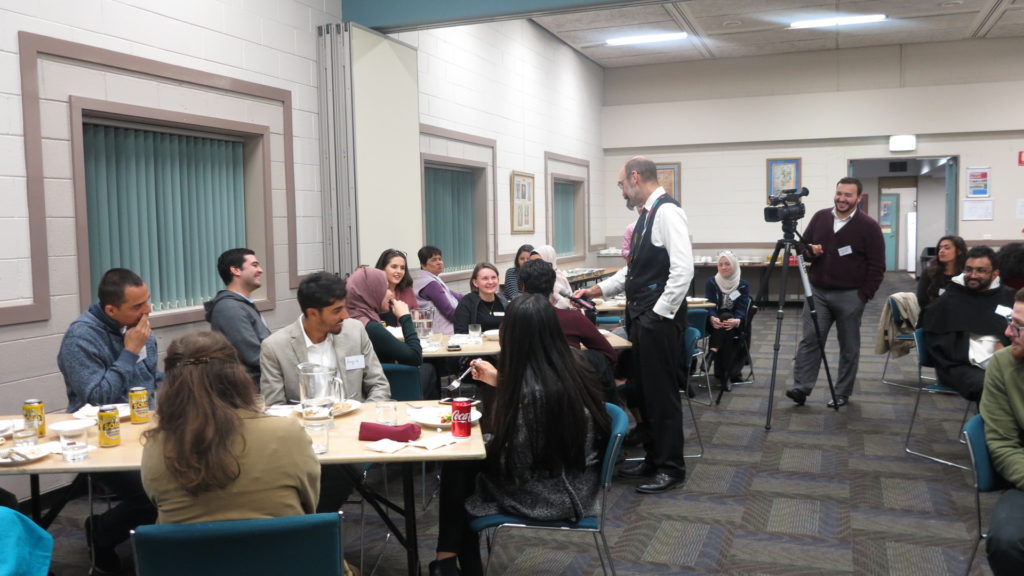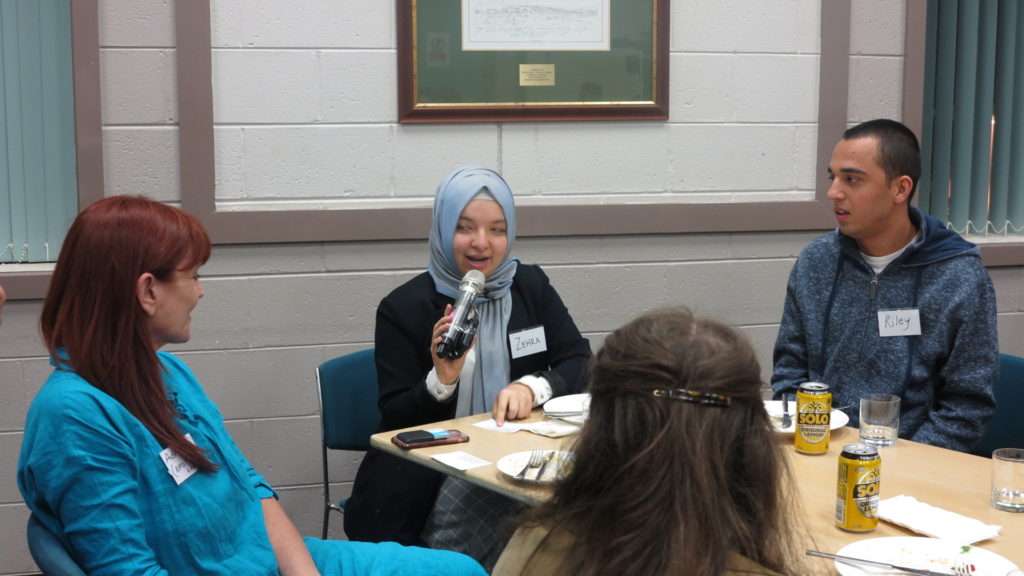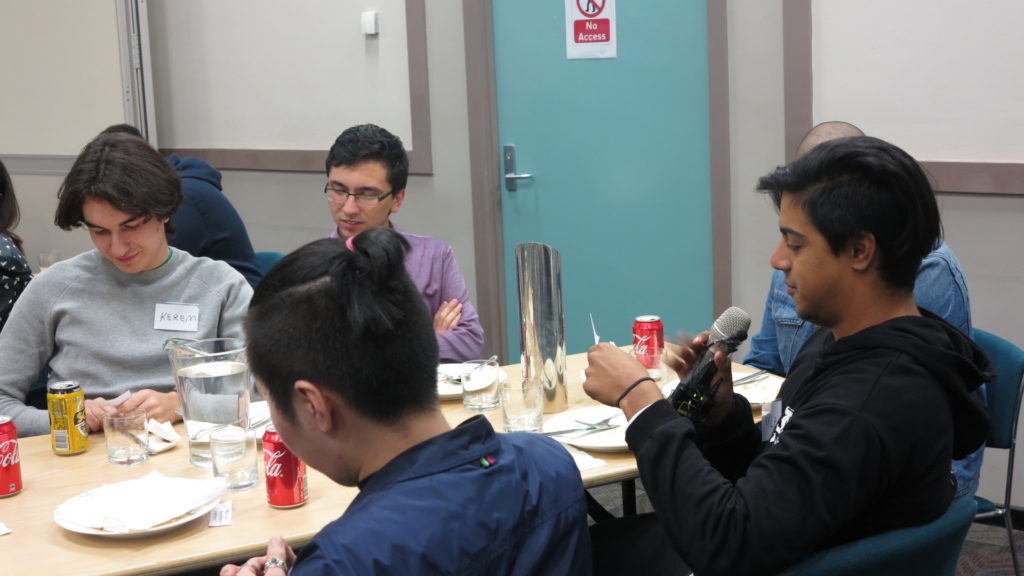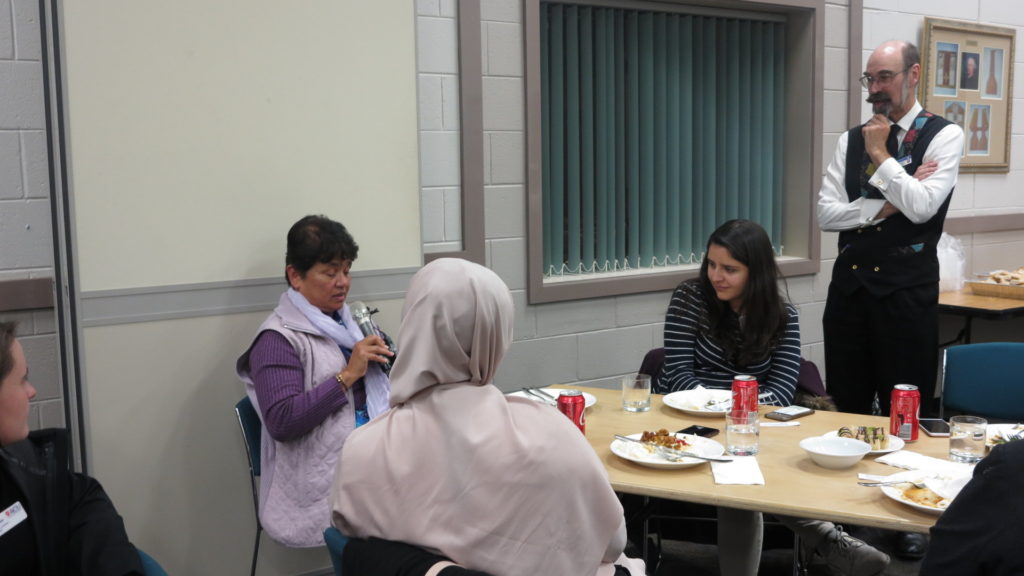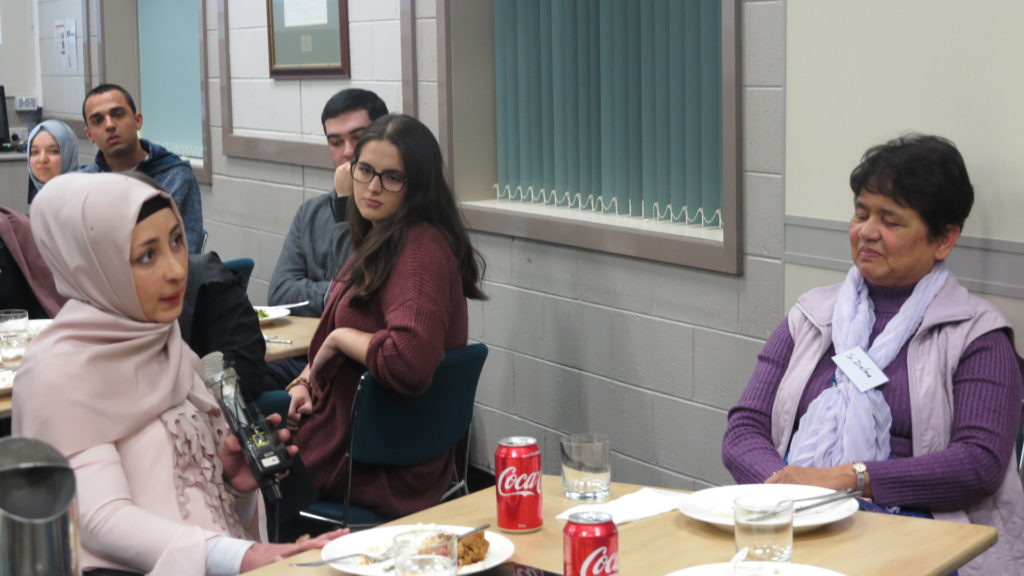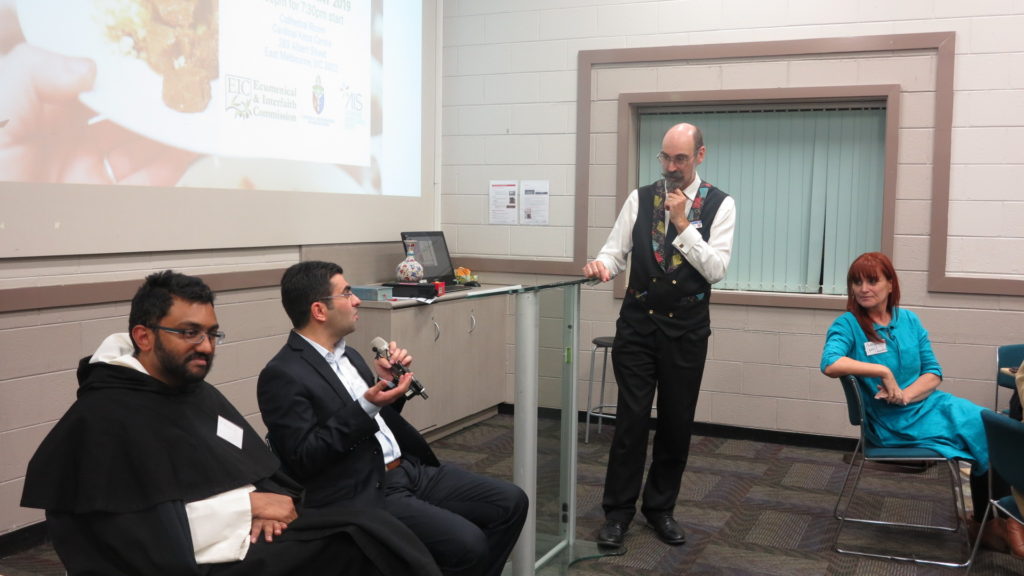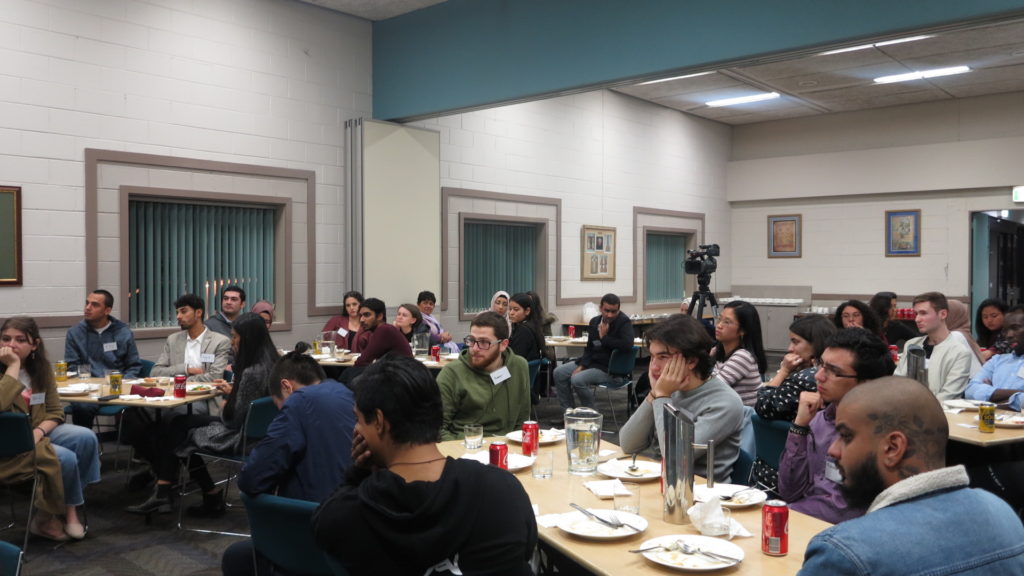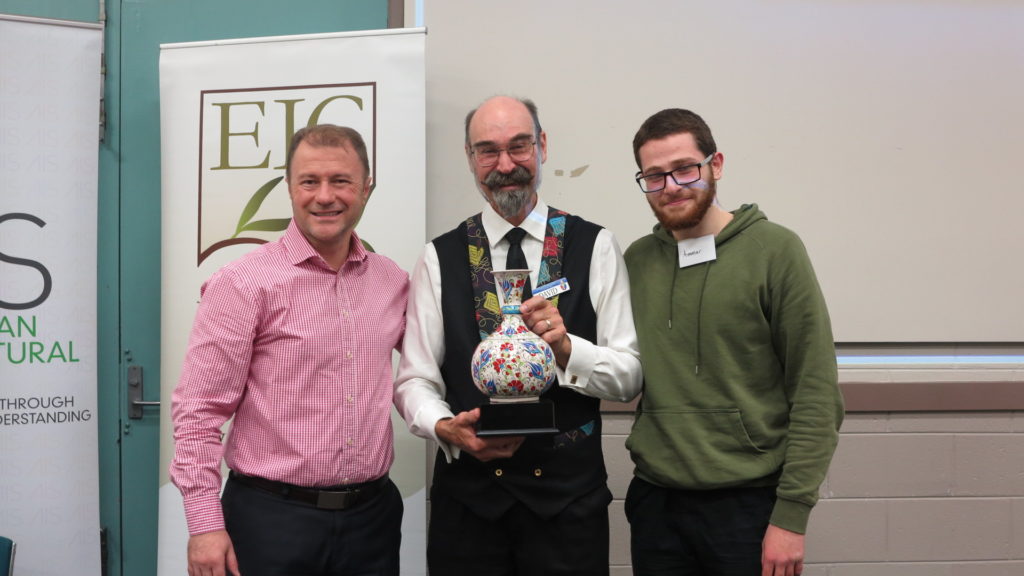Muslim-Catholic Youth Iftar Dinner 2019
On the 20th of May 2019, the Ecumenical & Interfaith Commission of the Catholic Archdiocese of Melbourne and the Australian Intercultural Society hosted a Muslim – Catholic Youth Interfaith Iftar dinner, which brought together youths from both the Muslim and Catholic faiths to discuss the differences and, more importantly, the similarities between the two religious backgrounds.
The program began with a call to prayer and a breaking of the fast, as all Iftar dinners do, but then went into a portion of the night where attendees were handed questions and asked to respond. Questions began simply. “What’s your favourite fast food chain?” “What’s your favourite movie?” “Favourite band?” “Favourite actor?”. Then questions began to get a bit more complex.
“What is your favourite part of being Catholic or Muslim?”. A young Catholic man spoke of how his religion is very “community based”. “It gives you a lot of opportunity to socialise with other people that are like minded and from all parts of the world”. A young Muslim man answered the same question. He talked about how Islam promotes “accepting people no matter who they are, no matter what they believe in” and said this was his favourite aspect of his faith.
The conversation slowly got more in depth with each question. One question asked “Do you wear religious clothing or jewellery?”. A young woman of the Muslim faith said she personally does not. “..just because I kind of grew up in Saudi Arabia…I kind of found that wearing whatever I personally like that has nothing to do with religion more comortable to me”. The young Catholic woman who answered the question said “yeah I do, but not, like, really obvious… so like maybe shirts that are from my youth group or something.. And it kind of feels a bit pressuring for me personally that if I wear something, I have to represent it”. This was a great segway into the next question, which addressed following the rules of your religion and what is most challenging about “living your faith”.
One of the sisters of the Catholic church spoke first, joking that “ if I don’t follow the rules of my religion what chance have the others got!”. After a quick chuckle, she spoke more seriously on the topic. “What do you find most challenging about living your faith? I guess it’s being who I’m supposed to be and trying to imitate Jesus and that’s sometimes a challenge isn’t it? We all know that, all of us find it difficult. So hopefully we will be judged on how hard we try, not the success”. This drew attention to the fact that no matter how seriously you practice your religion or how much of a presence your religion has in your life, at the end of the day we are all just human beings, doing the best we can.
The next question, “Do you think that your religion has a problem with treating men and women equally?” truly highlighted the similarities in both religions in terms of gender. The young women who answered first spoke of gender in her Islamic faith and said “I personally don’t think that my religion, Islam, has a problem with treating men and women equally. I think there’s a problem within culture, and most of the time things can be misinterpreted from the Quran or from the Hadith, from Prophet Muhammad… I think there’s also this apsect in Islam, a woman’s right is not calculated on the basis of a man’s right, I think it’s calculated in regards to God and how He views both the sexes”. The young Catholic woman across the table chimed in excitedly, saying “that’s exactly what I would say! It’s the same with the Catholic faith. If there is inequality, it’s more of a culture thing, depending on where you grow up, what country you’ve been raised in. But I think the difference is, it’s not inequality, there’s differences that should be celebrated! Like men are priests, but women can give birth”.
Questions continued on topics such as conflict and other miscommunications about the Catholic church and the Islamic faith. The floor then opened up for the audience to ask an Expert. The night ended up highlighting many more similarities between the two faith groups than differences. When asked why programs such as these were important, the Muslim expert said “We have to engage with other faith groups and have that good understanding of each other and communication”.
The night created a much needed open discussion between the two faith groups, which ended up bringing both groups together more than they had ever experienced before.

